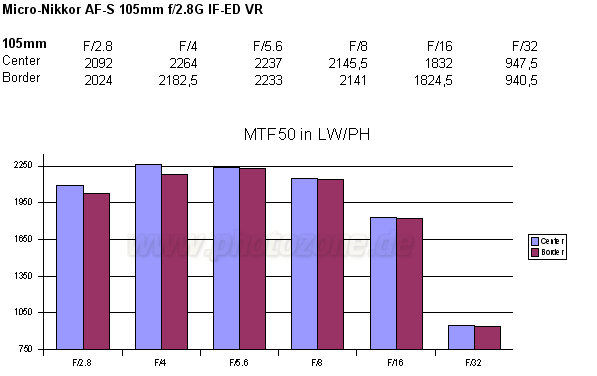Kit Lens? So what?
Apr 14, 2013 14:21:15 #
Newbie here. Recently purchased the Canon T3i , mostly for video purposes. Came with the usual 18-55mm lens plus a 75-300mm.
On this forum, I have read some implied skepticism about certain kit lenses, but no one (in my limited viewing) has actually come out and detailed the minuses of some of the standard kit lenses, or which ones are particularly problematic and why. Details, anyone? What's the specific problem(s)?
On this forum, I have read some implied skepticism about certain kit lenses, but no one (in my limited viewing) has actually come out and detailed the minuses of some of the standard kit lenses, or which ones are particularly problematic and why. Details, anyone? What's the specific problem(s)?
Apr 14, 2013 14:28:29 #
Kit lenses suffer from three major drawbacks. Light weight & low cost require lenses to be:
1.) composed of high quality plastic, not optical glass, resulting in a bit lower IQ;
2.) small diameter, resulting in smaller maximum apertures than higher cost lenses;
3.) barrel construction and much internal workings to be of plastic, not metal, making lens easily susceptible to damage.
Kit lens are well designed, and mass production makes them quite affordable. Most kit lenses are fine for learning photographic principles, but many photographers eventually add higher quality lenses, each usually more expensive than original camera & kit lens combination.
1.) composed of high quality plastic, not optical glass, resulting in a bit lower IQ;
2.) small diameter, resulting in smaller maximum apertures than higher cost lenses;
3.) barrel construction and much internal workings to be of plastic, not metal, making lens easily susceptible to damage.
Kit lens are well designed, and mass production makes them quite affordable. Most kit lenses are fine for learning photographic principles, but many photographers eventually add higher quality lenses, each usually more expensive than original camera & kit lens combination.
Apr 14, 2013 14:39:44 #
Welcome to UHH Pedrohog, nice place here to make friends and learn. Great combo!
I am not the teacher, I am the enjoyer!
I am not the teacher, I am the enjoyer!
Apr 14, 2013 14:45:30 #
Pedrohog wrote:
Newbie here. Recently purchased the Canon T3i , mostly for video purposes. Came with the usual 18-55mm lens plus a 75-300mm.
On this forum, I have read some implied skepticism about certain kit lenses, but no one (in my limited viewing) has actually come out and detailed the minuses of some of the standard kit lenses, or which ones are particularly problematic and why. Details, anyone? What's the specific problem(s)?
On this forum, I have read some implied skepticism about certain kit lenses, but no one (in my limited viewing) has actually come out and detailed the minuses of some of the standard kit lenses, or which ones are particularly problematic and why. Details, anyone? What's the specific problem(s)?
There isn't really a specific problem with them. They are just not as well made as the more expensive lenses.
For instance:
Kit lenses -
*plastic barrels
*plastic bayonet mount
*won't manual focus while in autofocus mode without stripping out the gears
*Optics not as precision ground and not multi coated as more expensive glass
*some have no lens hood bayonet mounts
*some have no distance scale
*the IS features not as smooth (cheaper made) as the more expensive lenses
*more susceptible to chromatic aberration because of lens design
*more distortion because of lens design
*more susceptible to zoom lens creep than more expensive lenses
*less resale value
*not fast e.g. good lenses (f-stop for low light shooting etc.)
*won't stand up to the riggers of professional uses by a pro that depends on a dependable lens to make a living.
Other than that, they are great for taking nice snap shots and with practice, under certain conditions and in good hands make absolutely stunning images. I'm saying "they are NOT crap!" But, as in anything you buy these days, there are choices from less to more expensive, durable to not so durable, crap to excellent, so on and so on. A kit lens is something to get the novice started in photography. Some more experienced photographers will usually try to buy a 'body only' because they are already vested in good glass.
Apr 14, 2013 14:54:05 #
Nikonian72 wrote:
Kit lenses suffer from three major drawbacks. Lig... (show quote)
Wonderful response, albeit mildly depressing since, natch, I want the best, sharpest image possible. But thanks so much!
Apr 14, 2013 14:55:45 #
If you wanted the best sharpest image possible then you would have had to be prepared to spend $6k to $10k.
Of course I want the fastest best looking sports car made but I can only afford a Miata. LOL I guess I won't be sporting the best looking or fastest car after all. But actually, I don't have a Miata. I wouldn't own one.
Of course I want the fastest best looking sports car made but I can only afford a Miata. LOL I guess I won't be sporting the best looking or fastest car after all. But actually, I don't have a Miata. I wouldn't own one.
Apr 14, 2013 14:58:54 #
I started out with the kit lens. It is good for snaps, pictures you take for memories. Once I had learned some of the workings on my camera body I moved up into better lenses. As others have said kit lens is a starting point, cheap but useful a little care and they will last a good while. Higher priced lens are better. Less breakable plastic. Better glass (also not plastic). I would recommend you buy the best you can afford for the kind of images you want to take.
Apr 14, 2013 14:59:48 #
Apr 14, 2013 15:11:22 #
When you get ready to upgrade don't be afraid to go to used. HOWEVER stay with the well know dealers who have good return polices and abide by them, like KEH, B&H and Adorama. Many people on this forum have bought used equipment of all kinds. Good luck on your video taking
Apr 14, 2013 15:12:56 #
The kit lenses of today have come a long way from their predecessors. I have seen many great shots taken with them. They are still not up to par to any pro lens, not even close. If you don't know, or at least have an idea, what you're doing, all the good glass won't fix your problems. I do recommend to people not getting the kit. There is so much better glass out there for just a few bucks more. (I will be speaking of Canon, 'cause that is what I use) If you took the extra $$, and added a few dollars, you could get decent glass. The Canon 50mm f/1.4 is on sale a lot for under $400, the 40mm f/2.8 (with metal mount) is currently on sale for $149, the canon 85mm f/1.8 is a super lens (currently on sale @ Adorama for $369 but I can't find it on B&H, might being discontinued), & of course the Nifty Fifty for around $100.
All of these lenses will provide you with an incredible amount more light. Also, with the exception of the Nifty Fifty, are all made of better materials.
All of these lenses will provide you with an incredible amount more light. Also, with the exception of the Nifty Fifty, are all made of better materials.
Apr 14, 2013 15:43:38 #
Pedrohog wrote:
My D5000 kit included an 18-55mm zoom & a 55-200mm zoom. I broke the wide zoom (plastic flanges), and quickly outgrew the tele zoom. My real interest is macro, so I mostly use a Nikkor 105G, which cost more than my original camera kit package. Judicious purchasing will prevent spending "$6k to $10k" as suggested above.Wonderful response, albeit mildly depressing since, natch, I want the best, sharpest image possible. But thanks so much!
Apr 14, 2013 16:06:18 #
While Glass lenses have been the norm since time began, I have wondered WHY some photogs. put down plastic optics ? The have been a " God-send," in weight saving for eye glasses. They save a lot of weight in camera handling. I wonder if it isn't just a " Purist," thing to say Glass is better or the security of the added weight. ( As in stronger ) Any thoughts ?
Apr 14, 2013 16:24:16 #
Pedrohog wrote:
Newbie here. Recently purchased the Canon T3i , mostly for video purposes. Came with the usual 18-55mm lens plus a 75-300mm.
On this forum, I have read some implied skepticism about certain kit lenses, but no one (in my limited viewing) has actually come out and detailed the minuses of some of the standard kit lenses, or which ones are particularly problematic and why. Details, anyone? What's the specific problem(s)?
On this forum, I have read some implied skepticism about certain kit lenses, but no one (in my limited viewing) has actually come out and detailed the minuses of some of the standard kit lenses, or which ones are particularly problematic and why. Details, anyone? What's the specific problem(s)?
PedroHog, welcome to the Hog, where everything you hear is absolutely true.
Pedro, most people don't need high end glass. Some get good glass because they need it. Most get good glass because they want it.
In demanding situations good glass will show its superiority, but most often not. Good glass holds its value well, so it's a good risk as well as an investment. On two occasions I have made money selling my used glass.
In most cases you can sell L glass for a loss of what it might cost to rent a lens for a weekend after using it for several years. So if you can afford it, by all means buy it and reap the benefits of using it.
But does anybody actually need it? Mostly no.
Again, welcome PedroHog.
Apr 14, 2013 16:30:58 #
Bobgood1 wrote:
Lens resolution is qualitative, not opinion, nor prejudice. Every lens has an "MTF" chart, which measures Image Quality (IQ). While Glass lenses have been the norm since time began, I have wondered WHY some photogs. put down plastic optics ? The have been a " God-send," in weight saving for eye glasses. They save a lot of weight in camera handling. I wonder if it isn't just a " Purist," thing to say Glass is better or the security of the added weight. ( As in stronger ) Any thoughts ?
Attached is the MTF chart of a Nikkor 105G macro lens. Optical glass lens IQs are superior to plastic lens IQs.
Introduction to resolution and MTF curves: http://www.normankoren.com/Tutorials/MTF.html

Apr 14, 2013 16:36:39 #
Depends if you are a pro or not. Kits lens will do an excellent job, but you will probably have to work harder for taking your picture and probably in post processing too. You might occasionally miss the odd shot and that might be 'vitally important' rather than ' mildly annoying' to you. One assumes that pro's do not want to do this. That might actually be an illusion. I don't know many pro photographers who make a living solely from the speed and Quality of their pictures. Lots take their time and write books, articles, and websites or have 'proper jobs'too. I accept the other criticisms about them being sometimes plasticky and having low quality mechanics. So do most cameras, TV's, Cars, airplanes,hospital equipment etc. We have all got to get used to it
However,in the real world I would prefer to spend £10k on a vacation and take memorable shots rather than buy a great lens and photograph in my garden. I know that I am a limited photographer, without a website, not selling postcards or prints and not tied to a magazine that lists the only cameras that they will accept prints from. I am not in the business.
My advice would be to use the kit lens until you know its limitations. Having decided what you don't like and what your special requirements are heading towards shop around for another 'cheap and plastic lens'. It would take a braver man than me to spend £1000's on a hobby: it might encourage the wife to go spending too.
When you have made a business and can write off a couple of thousand to tax then you too can buy the right tools and importantly know exactly why you bought it and how soon it will repay you. If you are in a business and need to write of some expenses to tax then photography is the right game to be in..!
Enjoy your kit lense for a week..month..year..decade it aint really worth trading in once you have taken it out of the box. No matter what- at some point you will decide to use it if only as a back-up.
However,in the real world I would prefer to spend £10k on a vacation and take memorable shots rather than buy a great lens and photograph in my garden. I know that I am a limited photographer, without a website, not selling postcards or prints and not tied to a magazine that lists the only cameras that they will accept prints from. I am not in the business.
My advice would be to use the kit lens until you know its limitations. Having decided what you don't like and what your special requirements are heading towards shop around for another 'cheap and plastic lens'. It would take a braver man than me to spend £1000's on a hobby: it might encourage the wife to go spending too.
When you have made a business and can write off a couple of thousand to tax then you too can buy the right tools and importantly know exactly why you bought it and how soon it will repay you. If you are in a business and need to write of some expenses to tax then photography is the right game to be in..!
Enjoy your kit lense for a week..month..year..decade it aint really worth trading in once you have taken it out of the box. No matter what- at some point you will decide to use it if only as a back-up.
If you want to reply, then register here. Registration is free and your account is created instantly, so you can post right away.








